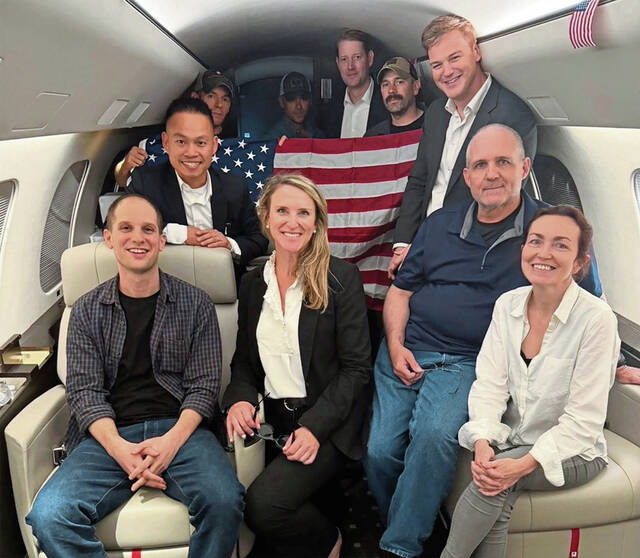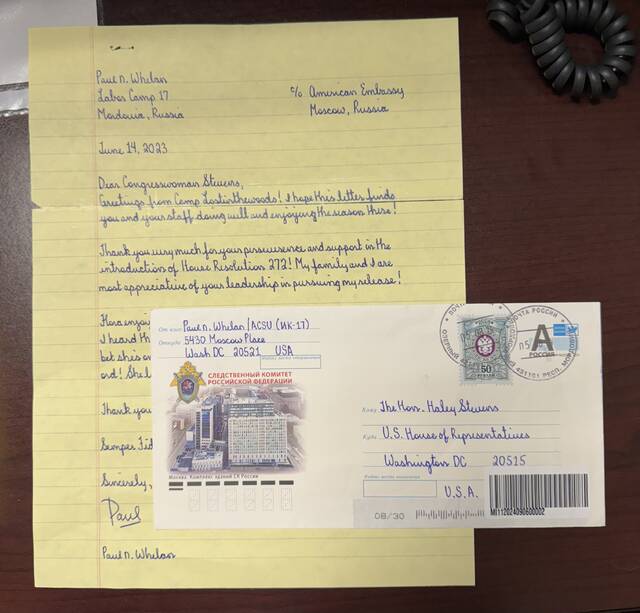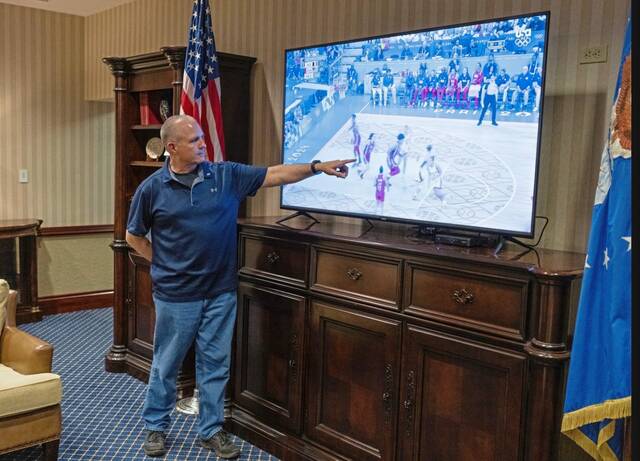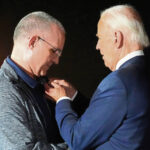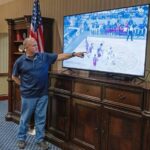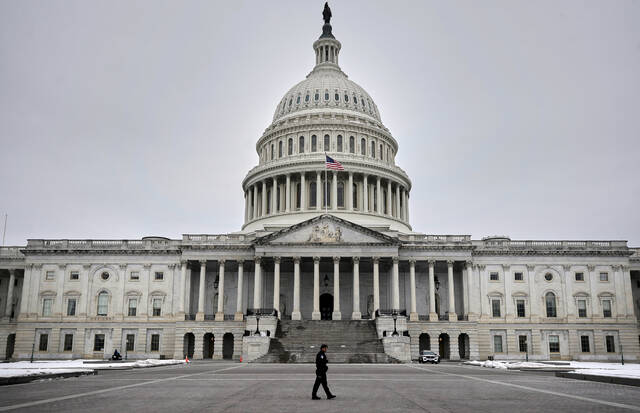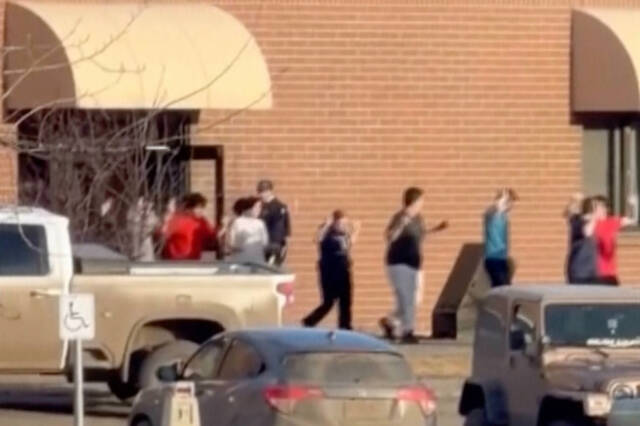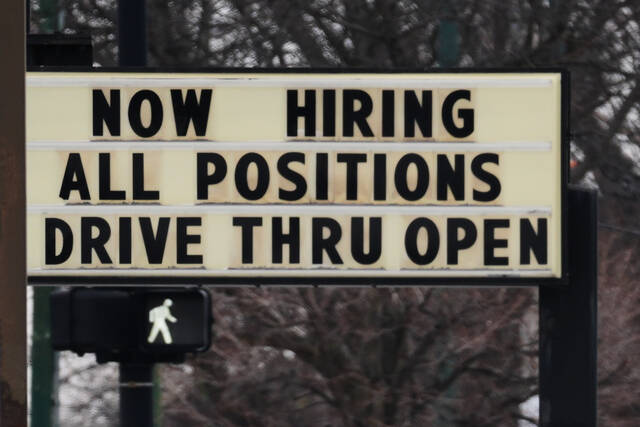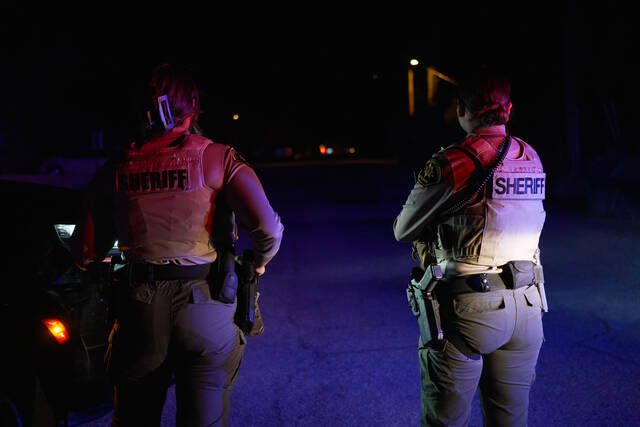Former Marine Paul Whelan said, even though he’s been back in the United States since August — after more than five years of Russian captivity — his reintegration into American society continues.
“Everything’s familiar, but you still have to get used to it,” Whelan said in an interview with TribLive on Saturday. “I’ve been back six months, and I’m slowly getting back into normal life.”
Take Saturday, for example. Whelan shoveled snow at his home outside Ann Arbor, Mich. Later in the day, he would enjoy a cup of coffee and a cigar.
Yet such everyday events — working around the house, caring for his cats — still sometimes feel strange, he said.
“It’s all of these things you haven’t experienced for five years,” said Whelan, who’s 55. “There’s a gap in your life that becomes evident on almost a daily basis.
“You’re eating food you haven’t for nearly six years. You’re watching a Super Bowl with players you don’t know.”
The adjustment takes time. Whelan said he believes it will take him about two years to get back to normal.
“It’s not something you come home and get over,” he said. “To me, speaking about it is good therapy.”
Whelan expects Marc Fogel to experience similar feelings as he adjusts to life back in the United States.
Fogel, a Butler County native formerly from Oakmont, was held in Russia for more than 3½ years after being arrested for taking medically prescribed marijuana into Moscow, where he worked teaching history.
He was released on Tuesday, and on Wednesday flew to Brooke Army Medical Center in San Antonio for a medical evaluation. On Friday, Fogel completed that part of his reintegration and was moving into the next part of what is called Post-Isolation Support Activity.
The next phases, Whelan said, include mental health support, learning how to be out in public again and spending time with family and loved ones.
It is a process, he said.
“Marc Fogel will find this, too,” Whelan said. “The longer you’re gone, the harder it is to get back to normal. So it’s a constant reminder of what happened to you and that you were gone.
“It’s a surreal experience.”
Before his Russian ordeal, Whelan was director of global security for an auto parts supplier. He traveled to Moscow in December 2018 for a friend’s wedding.
He was arrested and accused of espionage. After a sham trial, Whelan was sentenced to 16 years in a Russian prison. He was moved to Mordovia, where he was forced to work in a factory at a Russian labor camp, putting buttons and button holes in winter coats and trousers.
Whelan, who is also a citizen of Ireland, Britain and Canada because of family heritage, was active in his efforts to earn freedom, writing thousands of letters and making calls using burner phones he obtained by bribing the guards there.
He remained imprisoned for five years, seven months and five days until his release in a massive, multinational prisoner swap on Aug. 1.
Leading up to his release, Whelan was held in solitary for five days and hadn’t showered for two weeks.
Video of him walking down the steps of the plane to meet former President Joe Biden and former Vice President Kamala Harris showed Whelan holding on tight to the railing.
“I didn’t want to fall down the steps,” he said.
Afterward, Whelan was flown to San Antonio for the Post-Isolation Support Activity program.
He remained there for 20 days.
“You’re taken aback. You’re in a real country, in a real hospital with real doctors and real equipment,” Whelan said.
After his medical evaluation was complete, Whelan moved to Distinguished Visitor Quarters on base for the next phase: interacting with the public, including going to the movie theater, library or store.
“It is controlled, but getting used to being around people in situations you don’t have to be anxious about,” he said.
One of his favorite parts was visiting horses that lived in a pasture behind their housing.
Every day, Whelan took all of the apples from their catered breakfast, walked out back and fed them to the horses. It brought him immense joy.
“I hadn’t been around animals,” he said. “There was a lot of funny stuff like that. Normal stuff.”
Early on, Whelan said, he went with a psychologist to a grocery store on base to buy food.
As he pushed the cart around, Whelan loaded it with multiple packs of Chips Ahoy cookies and Oreos.
“Paul, you’re only going to be there for three weeks,” he said the psychologist told him. “That’s an awful lot of food.”
Whelan put some back on the shelves but still left, he said, with way too much.
He also remembers the joy of being able to walk around in the heat of the San Antonio summer after experiencing years of Russian winters.
But then, Whelan said, he returned to his home in Michigan.
“Once you leave that program, and you go home, and you’re on your own, you’re like, ‘Wait a minute,’ ” he said. “This is where Marc will probably find issues.”
Whelan is critical of the lack of continuing care from the U.S. government for those who have returned, saying it should not be the job of nonprofit entities to do the work.
Although the federal Hostage Recovery Act says the U.S. government is to provide five years of medical and mental health services for returnees, there is no funding for it, Whelan said.
Those resources, he continued, are essential.
A congressional working group, he said, is attempting to address some of the needs he’s experienced.
Whelan’s company terminated his position after a year, and he doesn’t qualify for unemployment in Michigan because he hadn’t been working. He’s talking with legislators there, too.
“The advocacy is important, but there are people who need concrete assistance,” he said.
He spends much of his time now advocating to help provide more aid to those who have returned and to protect other American citizens from being detained abroad in the first place.
“People need to be told not to go to Russia, Iran and China,” he said.
After being away from political, social and current events over six years, he is getting used to changes in U.S. society.
“There’s a lack of civility and etiquette in society that I wish we could go back to,” Whelan said.
He’s watched congressional hearings where the participants shout at each other. In airports, he’s found many people who are rude.
Still, he is spending time traveling, visiting friends and loved ones, and continuing his recovery.
Sometimes, Whelan said, he just drives around and stops in local shops because he can. He also still eats whatever he wants, whenever he wants.
He’s looking forward to the spring and returning to riding his mountain bike.
“Every day is kind of an adventure still.”



